- News
- Reviews
- Bikes
- Accessories
- Accessories - misc
- Computer mounts
- Bags
- Bar ends
- Bike bags & cases
- Bottle cages
- Bottles
- Cameras
- Car racks
- Child seats
- Computers
- Glasses
- GPS units
- Helmets
- Lights - front
- Lights - rear
- Lights - sets
- Locks
- Mirrors
- Mudguards
- Racks
- Pumps & CO2 inflators
- Puncture kits
- Reflectives
- Smart watches
- Stands and racks
- Trailers
- Clothing
- Components
- Bar tape & grips
- Bottom brackets
- Brake & gear cables
- Brake & STI levers
- Brake pads & spares
- Brakes
- Cassettes & freewheels
- Chains
- Chainsets & chainrings
- Derailleurs - front
- Derailleurs - rear
- Forks
- Gear levers & shifters
- Groupsets
- Handlebars & extensions
- Headsets
- Hubs
- Inner tubes
- Pedals
- Quick releases & skewers
- Saddles
- Seatposts
- Stems
- Wheels
- Tyres
- Health, fitness and nutrition
- Tools and workshop
- Miscellaneous
- Tubeless valves
- Buyers Guides
- Features
- Forum
- Recommends
- Podcast
review
£140.00
VERDICT:
Impressive wide and flat beam pattern and a cool OLED display to let you know what's what
Weight:
135g
Contact:
At road.cc every product is thoroughly tested for as long as it takes to get a proper insight into how well it works. Our reviewers are experienced cyclists that we trust to be objective. While we strive to ensure that opinions expressed are backed up by facts, reviews are by their nature an informed opinion, not a definitive verdict. We don't intentionally try to break anything (except locks) but we do try to look for weak points in any design. The overall score is not just an average of the other scores: it reflects both a product's function and value – with value determined by how a product compares with items of similar spec, quality, and price.
What the road.cc scores meanGood scores are more common than bad, because fortunately good products are more common than bad.
- Exceptional
- Excellent
- Very Good
- Good
- Quite good
- Average
- Not so good
- Poor
- Bad
- Appalling
New for 2018/19 is NiteRider's Lumina 1200 OLED Boost which sits in the company's Urban Commuter line-up. It's a clever little light that dishes out plenty of illumination and offers decent enough burn-times – which you can track on the OLED digital display that tells you modes and battery life – pretty good for its £140 price tag.
- Pros: Separate mode selections, wide flat beam pattern, digital display
- Cons: Bulky bracket, easy to switch on in a bag if you forget to lock it

Like we've seen on Exposure lights recently, NiteRider has added an OLED screen to some of its lights to display which mode you are using and, more importantly, battery life. Many lights use different colour LEDs to give you an idea of how much burn-time you've got left, and it's not a bad system but having a display telling you exactly what's what – especially when you are constantly changing modes – is very useful.
> Find your nearest dealer here
I'm not a fan of lights that require you to scroll through all of the modes, static and flashing, to get back to the start – the last thing you want on a pitch black country lane is three strobe disco effects before you get back to the high power setting. NiteRider has got around this here by splitting the modes up into three groups that are all accessible via the backlit buttons on the OLED display.
Page one has the static modes: a 1,000-lumen output which gives you 1hr 30mins of playtime, a 550 lumen (3hrs), and a 275 lumen (6hrs) which you can scroll through via the power button.
If you want maximum output for a twisty, technical section then a double click of the same button will give you the 1,200-lumen Boost mode. If you use it for the entire ride you'll be in darkness in just over an hour (each of the modes met their quoted burn-times), but on the road you are highly unlikely to need it often.
On the Lumina, NiteRider has used a new collimator lens to control the light being emitted from the single CREE LED. This gives a wider, flatter beam than most road lights, which tend to go for a powerful central spot, as you can see on our beam comparison, above.
It gives an excellent amount of peripheral vision, with even wide single carriageway A-roads getting a good spread of light from verge to verge. This allows you to run it at lower power outputs than a bright spot light would require for the same amount of spatial awareness. I could easily ride at near daylight speeds on the 550-lumen mode for all but the fastest downhill sections, so you can get out for a decent length ride in the dark.
> Buyer's Guide: The best front lights for cycling
Page two and three are made up of various flashing modes, including an SOS setup, which are all bright enough for daytime use. There is also a Walk Mode setting which allows the Lumina to be used as a torch or to limp home if you get caught out. It only gives 75 lumen but it'll run for 18 hours.
For your money you are getting a light that is very well built. NiteRider has created a solid unit with an aluminium body and there are plenty of cooling fins to stop the body overheating when it's turned on. I've dropped it a couple of times and the whole thing still looks like new.
Each of the buttons has a solid little click, and are easy to use even with thick gloves on.
For water resistance, the NiteRider is rated to IP64 which means it's only designed to keep water spray out. Although I had no issues, I'd like to see a higher rating like many other lights on the market – IPX6, for example, which means it keeps out water jets.
I did have issues with the NiteRider Omega 300 rear light letting in water and that has the same rating, so I wasn't taking any chances on my first wet ride with the Lumina – there were plenty of spares on the bike.
> Six tips for cycling at night
A front light doesn't see the same levels of abuse from road spray as a rear light, so it doesn't matter so much that the charge port is positioned underneath. It is well covered by a rubber cap anyway, and even when I tested it under the bathroom shower it didn't get any water ingress so things are looking good.
One thing you need to remember if you take the light off and chuck it in your bag is to use the lock to stop it being turned on by accident. Just a single press of the power button switches the Lumina on, but you can lock it by pressing and holding the power button for seven seconds. The screen will tell you when it is locked. You also need to hold the button down for the same time to unlock it.
The Lumina is quite a lightweight, small package considering its performance, while the clamp is quite a clumpy affair that won't win any prizes for aesthetics, that's for sure, but it does hold the light firmly once you've got the position set up on the handlebar (31.8-35mm diameter), with no movement or vibration.
Value-wise, I reckon the NiteRider delivers a lot for the money. The £129.99 Cateye Volt 1300 RC chucks more light out and has longer burn-times, but I prefer the wider beam pattern of the NiteRider. I also like the added benefit of the OLED screen on the Lumina, and the fact that you can select the static modes without having to scroll through the flashing ones.
You can pay a lot less if you don't want that screen, though: Blackburn offers the DayBlazer 1100 for just £84.99, which has similar burn-times. And you can buy a standard Lumina 1200 Boost without the OLED screen for £100.
Overall, the Lumina really delivers a lot for such a small light. The beam pattern is great for almost all riding, even off-road, and the build quality and ease of use are spot on.
Verdict
Impressive wide and flat beam pattern and a cool OLED display to let you know what's what
road.cc test report
Make and model: NiteRider Lumina 1200 OLED Boost
Size tested: 1200 Lumens
Tell us what the light is for, and who it's aimed at. What do the manufacturers say about it? How does that compare to your own feelings about it?
NiteRider says, "The NiteRider® Lumina™ OLED 1200 Boost is an innovative bike light that removes the guesswork related to battery life, allowing you to plan your next ride safely with complete confidence, day or night. The OLED multifunctional digital display screen delivers precise battery run times as a percentage and actual time for the Lumina™ OLED's 9 lighting levels. The Lumina™ OLED 1200 Boost features a custom engineered collimator sense, producing a generous widespread beam pattern. With Boost Mode providing a stunning 1200 lumens of maximum light output, this makes the Lumina™ OLED highly capable for use when navigating through diverse riding conditions."
I think the 1200 OLED Boost is a very decent light, especially the wide, flat beam pattern.
Tell us some more about the technical aspects of the light?
NiteRider lists these features:
* New Collimator Lens, distributes a generous even widespread beam
* Boost Mode! Unleash maximum LED output
* 5 Light Levels plus 4 Daylight Flash Modes
* CREE™ LED at 6000k
* Multifunctional OLED screen provides detailed operational information
* FL1 Standard IP64, water resistant
* Intellicharge™ – Reduce charge time in half!
* Backlit buttons for easy to use interface in any lighting condition
* Secure on and off-road capable handlebar mount
* Fits standard and oversize 35mm handlebars
* Convenient USB rechargeable
WARRANTY
The Lumina™ OLED 1200 Boost is backed by NiteRider's lifetime warranty that covers any defects in material and workmanship, mechanical components
(housings, covers, mounts and fasteners) and LEDs.
SYSTEM INCLUDES
LED Light Head with OLED Display
Internal Li-Ion Battery
Handlebar Mount fit up to 35mm
USB Charging Cable
Rate the light for quality of construction:
8/10
Rate the light for design and ease of use. How simple was the light to use?
9/10
Rate the light for the design and usability of the clamping system/s
8/10
Rate the light for waterproofing. How did it stand up to the elements?
7/10
Rate the light for battery life. How long did it last? How long did it take to recharge?
7/10
Decent quoted burn-times which it achieves. Charging takes around three hours if you plug it into the wall.
Rate the light for performance:
8/10
Rate the light for durability:
8/10
Rate the light for weight:
8/10
Rate the light for value:
6/10
Tell us how the light performed overall when used for its designed purpose
As a commuter light (where it sits in NiteRider's line-up) it's pretty hard to fault and you can still get a decent length road ride out of it if you are frugal with the power outputs.
Tell us what you particularly liked about the light
The OLED display letting you know modes and battery life.
Tell us what you particularly disliked about the light
The clamp is quite bulky on the handlebar.
How does the price compare to that of similar products in the market, including ones recently tested on road.cc?
It matches many at this price for power output, and offers an excellent beam pattern. The added OLED screen is a bonus.
Did you enjoy using the light? Yes
Would you consider buying the light? Yes
Would you recommend the light to a friend? Yes
Use this box to explain your overall score
For anything other than long night-time training rides, the Lumina is hard to fault, and hopefully it'll continue to keep the water out.
About the tester
Age: 40
I usually ride: This month's test bike My best bike is: B'Twin Ultra CF draped in the latest bling test components
I've been riding for: Over 20 years I ride: Every day I would class myself as: Expert
I regularly do the following types of riding: time trialling, commuting, club rides, sportives, fixed/singlespeed
Since writing his first bike review for road.cc back in early 2009 senior product reviewer Stu has tested more than a thousand pieces of kit, and hundreds of bikes.
With an HND in mechanical engineering and previous roles as a CNC programmer/machinist, draughtsman and development engineer (working in new product design) Stu understands what it takes to bring a product to market. A mix of that knowledge combined with his love of road and gravel cycling puts him in the ideal position to put the latest kit through its paces.
He first made the switch to road cycling in 1999, primarily for fitness, but it didn’t take long for his competitive side to take over which led to around ten years as a time triallist and some pretty decent results. These days though riding is more about escapism, keeping the weight off and just enjoying the fact that he gets to ride the latest technology as part of his day job.
Latest Comments
- 🐸 2 hours 28 min ago
There is no mention in article about situations like starting from zero speed and climbing out of saddle with low cadence. With shorter cranks in...
- Rendel Harris 2 hours 42 min ago
That's simply wrong I'm afraid, if you take a base number as a reference point then an increase above it can be expressed in terms of more than 100...
- David9694 3 hours 9 min ago
1981 Raleigh brochure on EBay - a missing link in the catalogues available on line. Bidding starts at £35. ...
- David9694 3 hours 33 min ago
It's a Brexit level of over-simplification the idea that car parking charges and retail prosperity are connected.
- newbankgyratory 4 hours 35 min ago
Useful video. Gives a chance to see other's points of view. Albeit not a lot of anticipation or consideration being shown (from the cammers). Very...
- S.E. 4 hours 51 min ago
It's probably in Romania by now, or Poland, but a picture would certainly help, size too?
- S.E. 5 hours 50 sec ago
Sounds like spam... which bike was used for the kit, please at least post pictures with the end result.
- chrisonabike 5 hours 6 min ago
He needs a good lawyer......
- wtjs 6 hours 37 min ago
I live in Gloucestershire where being inconvenienced is dealt with more harshly than being close passed, no matter how close or how fast...
- Hirsute 8 hours 3 min ago
I have read people commenting before about not having a camera on your helmet as it will give you injuries....



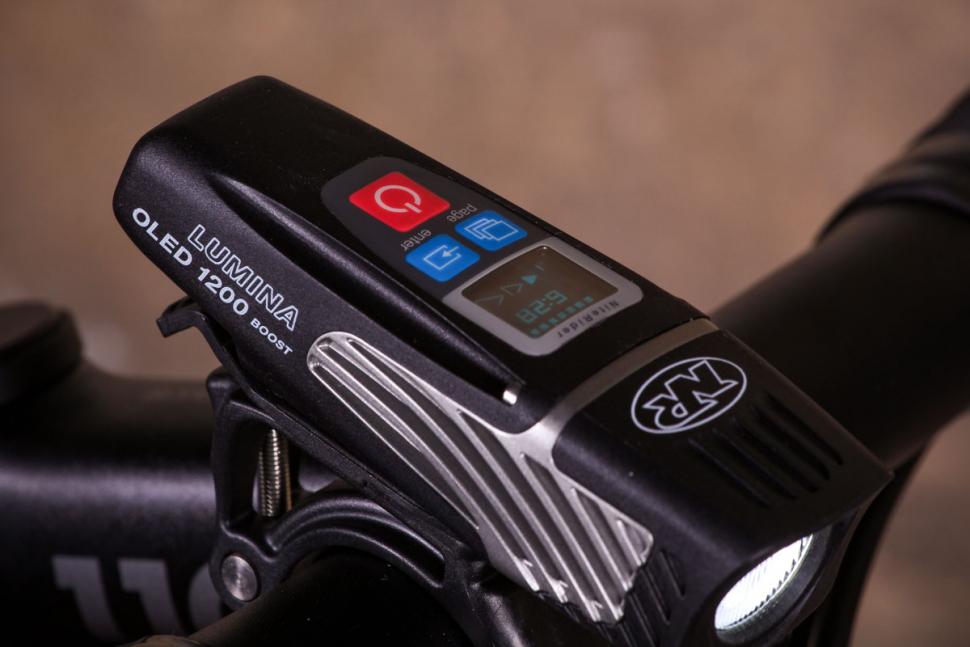
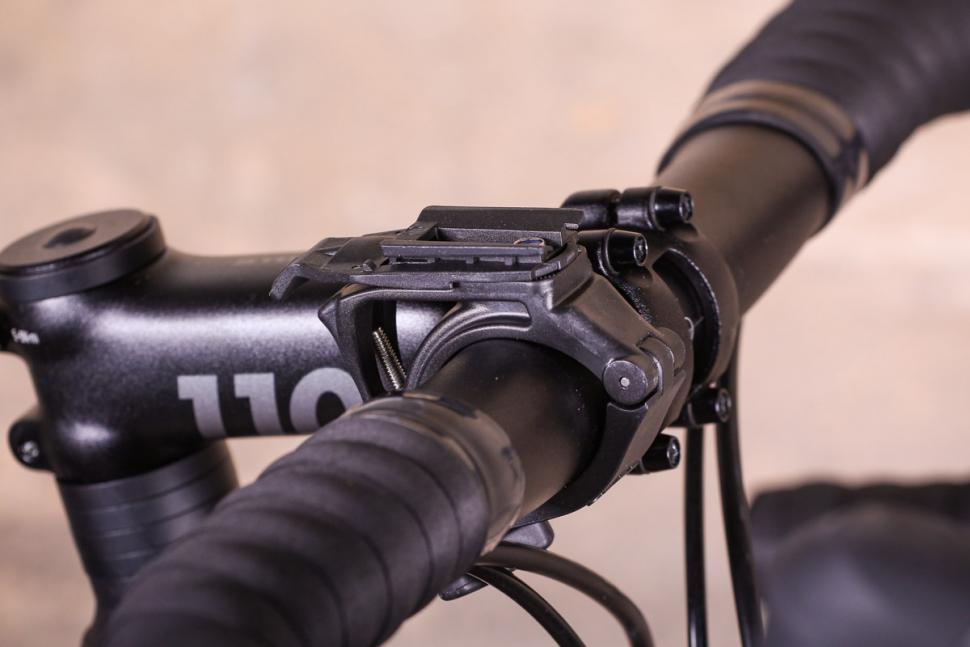
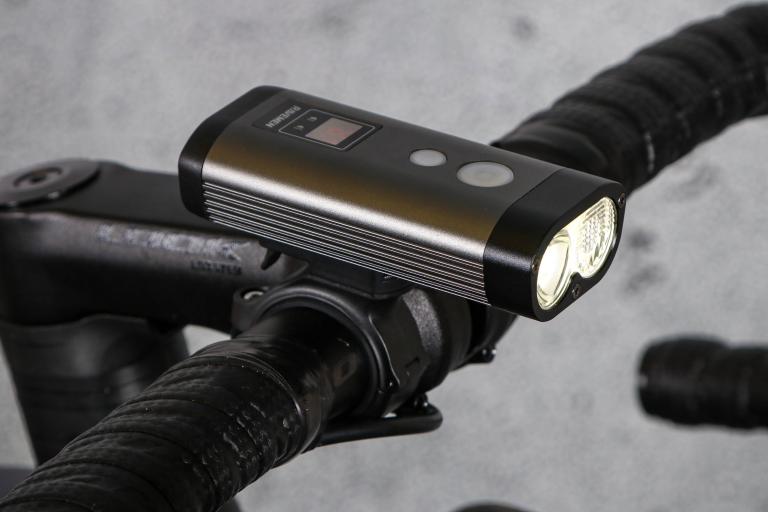
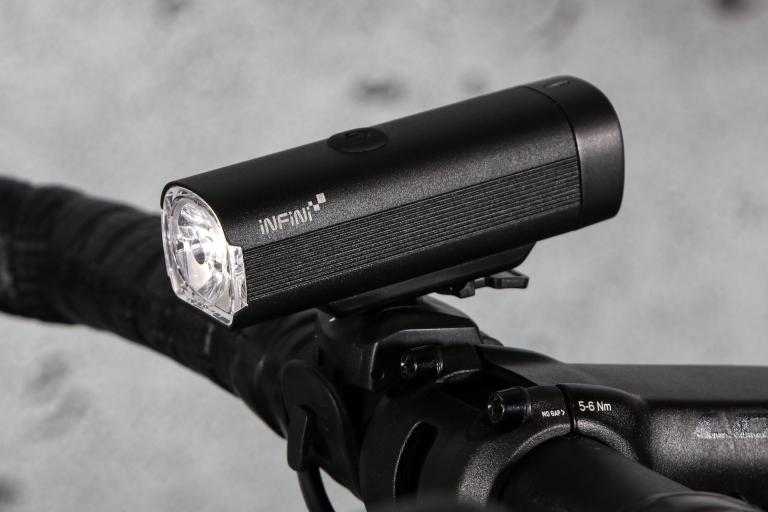
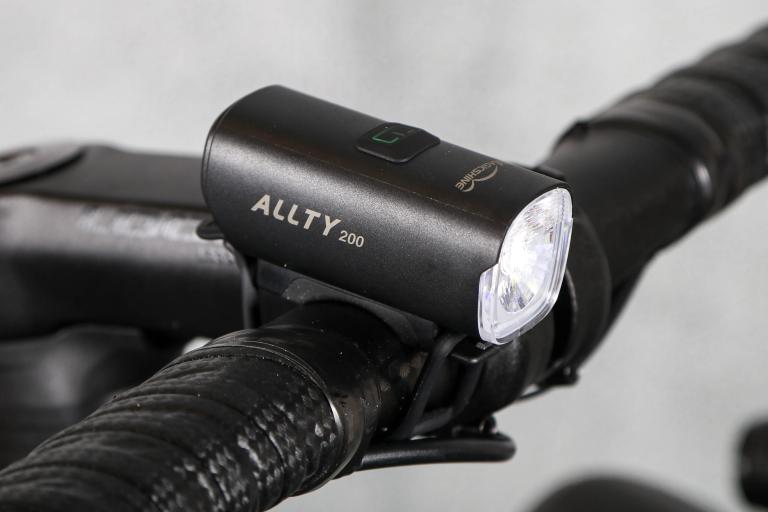
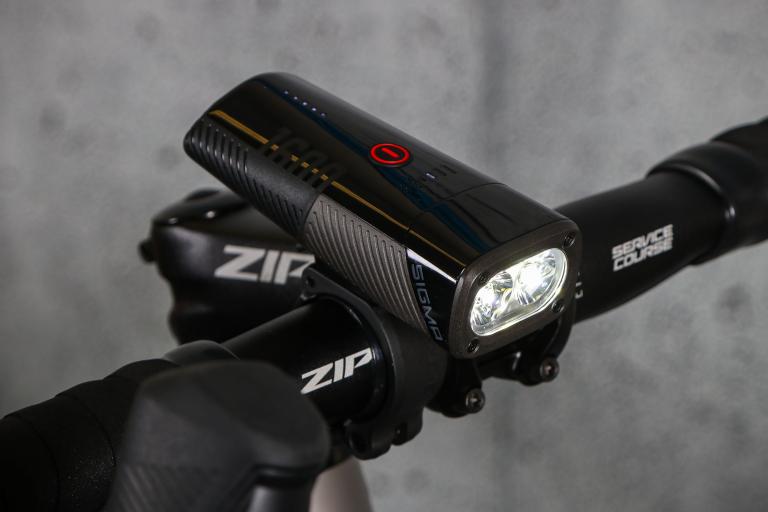
Add new comment
1 comments
I own this light and have been using it for just over one year during the winter months and when it was still dark when commuting to my workplace in the night/ early morning, essentially from mid-September to April.
Was very happy with the performance and the fit on my handlebars until a couple of days ago when the display kept indicating a 100% charge remaining on low intensity mode after a 30 minute ride (usually it hovers around 86% then). That the indicated number is obviously incorrect doesn't matter but what matters a great deal is that the light simply will not charge. Apparently the circuit thinks it's fully charged while in reality it's empty. I don't appear to be the only one experiencing this issue.
So far the seller (e-commerce, I know....) has been unresponsive to my warranty claims but we'll see if they respond in january.